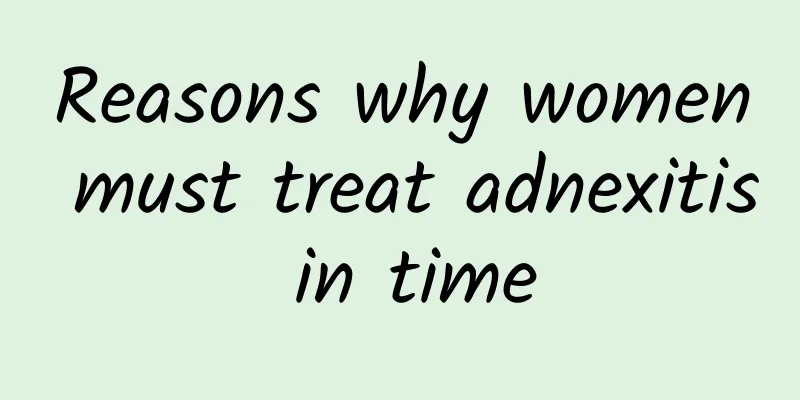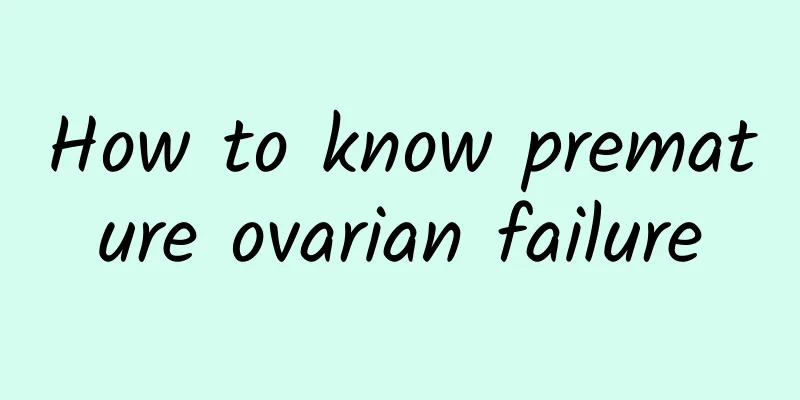What kind of fruit is not suitable for uterine fibroids? Uterine fibroids are most afraid of three kinds of fruits

|
What kind of fruit is not suitable for uterine fibroids? Uterine fibroids are most afraid of three kinds of fruits Uterine fibroids are a common gynecological disease that many women face. Diet is one of the important factors in our health. For patients with uterine fibroids, choosing the right fruit is also very important. This article will introduce what fruits are not suitable for uterine fibroids, and lists the three fruits that uterine fibroids are most afraid of. 1. What fruits are not suitable for people with uterine fibroids? 1. Orange Orange is one of the fruits that many people love very much. It is rich in vitamin C and is very helpful for enhancing immunity. However, orange is not suitable for patients with uterine fibroids. Orange contains a lot of acidic substances, which can easily stimulate the uterine wall and cause endometrial hyperplasia, thereby aggravating the symptoms of uterine fibroids. 2. Grapefruit Grapefruit is an appetizing and spleen-strengthening fruit with the effect of clearing away heat and detoxifying. However, the citric acid contained in grapefruit may cause uterine fibroids to mutate and aggravate the pain symptoms. Grapefruit also has a certain stimulating effect on the liver, so patients with uterine fibroids also need to be cautious when eating it. 3. Pineapple Pineapple is a fruit rich in vitamin C and dietary fiber, which is very effective in promoting digestion and preventing constipation. However, the enzyme substances contained in pineapple may affect the hormone balance in patients with uterine fibroids, causing the growth of uterine fibroids to accelerate. Therefore, patients with uterine fibroids are advised to eat less pineapple. 2. The three fruits that uterine fibroids are most afraid of 1. Watermelon Watermelon is one of the most popular fruits in summer. It is not only high in water content, but also rich in various vitamins and minerals. However, watermelon is cold in nature, which can easily cause severe menstrual pain and aggravate dysmenorrhea for patients with uterine fibroids. Watermelon is also rich in fructose, which can easily cause obesity and increase the risk of uterine fibroids. 2. Blueberries Blueberry is a nutritious fruit, rich in various vitamins and antioxidants. However, blueberries are highly acidic and can easily irritate the uterine wall, causing endometrial hyperplasia and dysmenorrhea. Therefore, patients with uterine fibroids are advised to eat them in moderation and avoid excessive intake. 3. Cherry Cherry is a very popular fruit in summer. It helps digestion and moisturizes the intestines. However, cherry is a warm fruit, which can easily aggravate the symptoms of irregular menstruation and dysmenorrhea in patients with uterine fibroids. Therefore, patients with uterine fibroids are advised to eat less or avoid eating cherries. For patients with uterine fibroids, dietary conditioning is very important. Choosing the right fruits is very important for relieving symptoms and improving physical health. Therefore, patients with uterine fibroids should avoid eating acidic fruits such as oranges, grapefruits and pineapples, and pay attention to the amount of fruits that are easy to stimulate uterine fibroids, such as watermelons, blueberries and cherries. Only by choosing the right fruits and matching the diet properly can we better manage and control the symptoms of uterine fibroids and maintain physical health. |
<<: What is uterine fibroid bleeding? Is uterine fibroid bleeding dangerous?
Recommend
Seeking a cure for ectopic pregnancy
Seeking treatment for ectopic pregnancy: Ectopic ...
What are the transmission routes of pelvic peritonitis?
Pelvic peritonitis is a common gynecological dise...
Conventional methods of Western medicine for treating habitual abortion
Conventional methods of Western medicine for trea...
How to quickly relieve dysmenorrhea
In daily life, many female friends are troubled b...
Daily care for bacterial vaginosis
Bacterial vaginitis can be divided into Haemophil...
My period was heavy but it was gone the next day.
My period was heavy but it was gone the next day....
Will ovarian cysts affect the fetus during pregnancy? How to treat it?
Ovarian cysts are familiar to many women. They ha...
Several common treatments for chronic adnexitis
Chronic adnexitis is relatively common for female...
What should I do if I have chronic pelvic inflammatory disease?
According to clinical data, the number of patient...
Abnormal leucorrhea, jelly-like and with a strange smell
Abnormal leucorrhea that is jelly-like and has an...
Under what circumstances does uterine fibroids need to be removed? Are uterine fibroids benign tumors?
Uterine fibroids are more common in women of chil...
What to do if you have cervical erosion during pregnancy? Five health care measures to cure cervical erosion after pregnancy
Pregnancy is a big event for a family, but if cer...
Precautions for treatment of patients with secondary amenorrhea
After secondary amenorrhea occurs, you should go ...
What are the precautions for preventing and treating adnexitis?
What are the precautions for preventing and treat...
What should you pay attention to when you have dysmenorrhea? The 7 most effective methods of TCM to treat dysmenorrhea
It is a normal physiological phenomenon for women...









